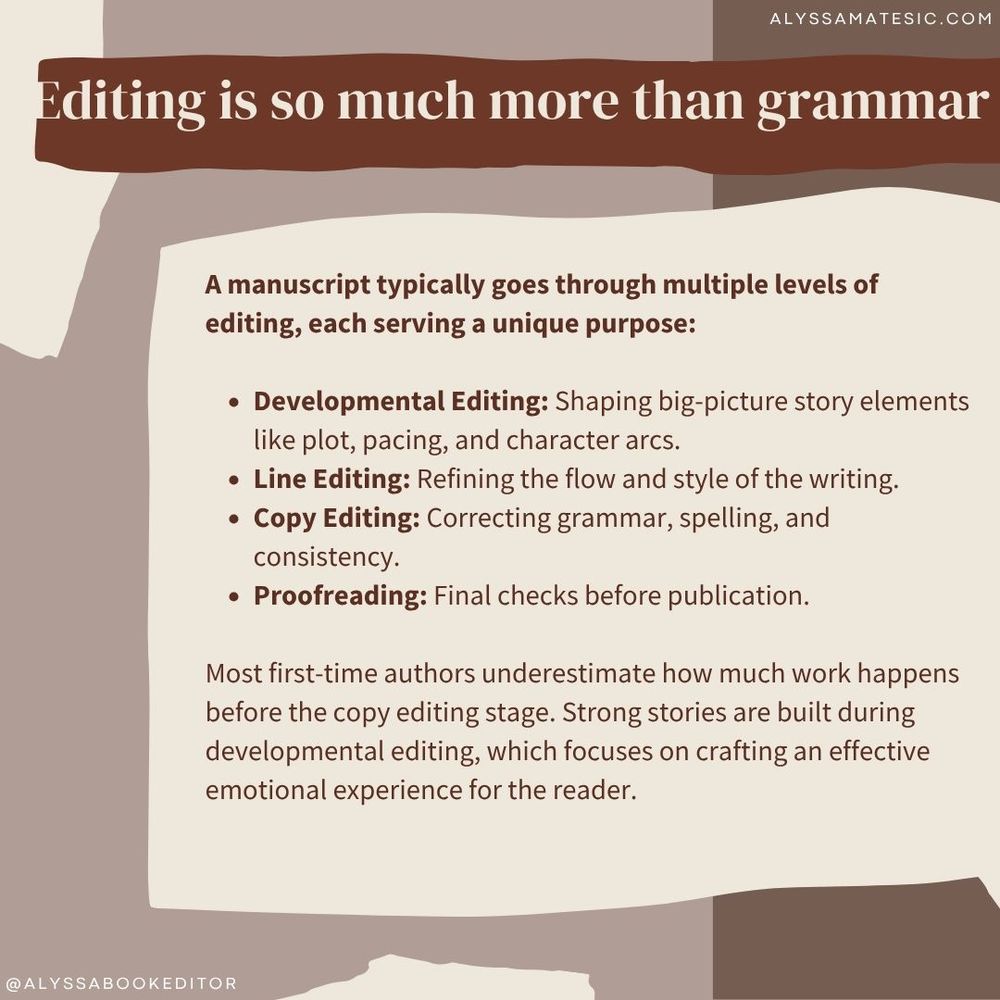Alyssa Matesic
@alyssamatesic.bsky.social
450 followers
13 following
870 posts
your book editor friend 💪📚
formerly at Penguin Random House and The Book Group
🎥 weekly tips on YouTube! https://www.youtube.com/@AlyssaMatesic
💌 insider publishing tips: https://www.chapter-break.com
✏️work with me: https://www.alyssamatesic.com
Posts
Media
Videos
Starter Packs








